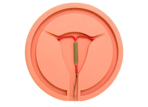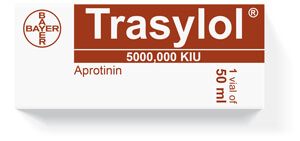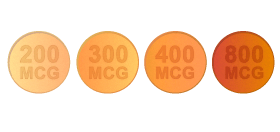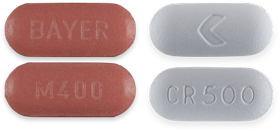Bayer
Bayer is a global pharmaceutical company known for making Aspirin. The company started more than 150 years ago and is now one of the largest corporations in the world. Bayer made about $52 billion in 2021. This is despite lawsuits that blame some of Bayer’s drugs and devices for injuries. The German-based company also has a history of scandal and marketing fraud.
Bayer is the maker of Aspirin. The popular pain reliever is one of the company’s oldest and most iconic products.
MiraLAX, Claritin, Alka-Seltzer, Midol and Aleve are Bayer’s other well-known consumer products.
But its prescription pharmaceuticals make up the majority of Bayer’s sales. Some of its popular pharmaceuticals include Levitra, Nexavar, Avelox, Cipro, Mirena and Xarelto.
The company also specializes in chemicals and veterinary products.
Bayer’s past includes Nazi ties and sales of HIV-tainted blood products. The company has also battled personal injury lawsuits and false marketing claims.
Bayer merged with Monsanto in 2016. Analysts say the company will likely put a heavier focus on agriculture in the future.
About Bayer
Bayer employs more than 115,000 people worldwide. More than 13,000 employees work at its 50-plus U.S. facilities.
German businessman Werner Baumann is Bayer’s CEO. He took the place of Marijn Dekkers in May 2016.
The company’s headquarters are in Germany. But its reach extends to America, Europe, Asia, Africa, Australia and New Zealand.
Bayer History
Friedrich Bayer and Johann Friedrich Weskott founded Bayer in 1863. The company developed Aspirin in 1899. Around that time, it also became the first company to sell heroin as a cough suppressant.
Bayer began producing explosives and chemical weapons during World War I.
The government seized the company’s foreign assets, patents and trademarks. This included aspirin and heroin.
From 1925 to 1951, Bayer incorporated into chemical conglomerate IG Farben. Bayer did not exist as an individual company.
After World War II, the Allies dissolved IG Farben into 12 new companies. Bayer re-emerged in 1951 as Farbenfabriken Bayer AG.
Bayer remained under control of the Allies from the 1950s to the 1970s.
Bayer’s Nazi Connections
IG Farben was Bayer’s parent company during WWII. The company had extensive ties to the Third Reich. This is according to Auschwitz concentration camp documents.
A 1999 lawsuit filed by Holocaust survivor Eva Mozes Kor revealed documents suggesting Bayer’s involvement in human experimentation. The lawsuit accused Bayer of paying Nazi officials for access to prisoners to test its drugs on.
Kor and her sister, Miriam, were among thousands of twins involved in the company’s experiments. They were 10 years old in 1945, when Allied forces defeated Nazi Germany.
Miriam died in 1993 of complications from the experiments. The lawsuit claimed Bayer provided toxic chemicals used in experiments.
Bayer resolved the lawsuit with the Foundation for Remembrance, Responsibility and the Future. The U.S. and German governments negotiated the $5 billion fund.
Bayer Products
Bayer separates its products into four categories. They are pharmaceuticals, consumer health, crop sciences and animal health.
Its pharmaceuticals division focuses on prescription products. This includes cardiology and women’s health care products.
Its consumer health division makes non-prescription products. These are for dermatology, nutrition, digestive health and cardiovascular prevention. Other areas include allergy, cough and cold, foot care and sun care.
- Aspirin/Aleve/Flanax
- Pain relievers
- Alka-Seltzer
- Antacid
- Claritin
- Antihistamine (allergy medicine)
- Yaz/Yasmin
- Birth control pills
- Mirena/Kyleena
- Uterine contraceptive devices (IUD)
- Essure
- Female sterilization device (permanent birth control)
- Xarelto
- Anticoagulant (blood thinner)
- Avelox/Cipro
- Fluoroquinolone antibiotics (for bacterial infections)
- Eylea
- Injectable eye medicine
- MiraLAX
- Powder laxative
- Coppertone
- Sunscreen and sun care products
- Levitra
- Erectile dysfunction drug
- Dr. Scholl’s
- Foot care products
Bayer Lawsuits and Settlements
Some of Bayer’s popular drugs and devices have been problematic. Reported side effects led to personal injury lawsuits.
Yaz/Yasmin
More than 10,000 women filed Yaz lawsuits against Bayer. The company settled more than 8,000 cases for $1.7 billion. About 60 federal lawsuits remained pending as of May 2018.

Mirena
More than 520 Mirena lawsuits were pending in New York in May 2018. Mirena lawsuits say Bayer failed to warn the device may move in the body.

Essure
Bayer agreed to settle nearly 39,000 Essure claims for $1.6 billion. Essure lawsuits blame the device for serious injuries and death.

Xarelto
Bayer is fighting about 22,000 Xarelto bleeding lawsuits. The lawsuits are in a federal court in Louisiana.

Trasylol
Bayer settled about 150 Trasylol lawsuits for $60 million in 2010. Studies linked Trasylol to an increased risk of death and other serious injuries.

Baycol
In 2005, Bayer paid $1.1 billion to settle about 3,000 Baycol death and injury claims. Lawsuits focused on rhabdomyolysis, a serious muscle condition that can cause death.

Avelox and Cipro
Bayer faces more than 780 lawsuits over fluoroquinolones like Cipro and Avelox. Cipro lawsuits and Avelox lawsuits say the antibiotics caused aortic injuries.

Bayer Drug Recalls
Bayer recalled some of its products due to incorrect labeling, choking hazards and deaths. Critics say some recalls didn’t come soon enough. Medical researchers say the lives of 22,000 people could have been saved had the FDA required an earlier recall of Trasylol.
| Year | Product | Reason |
|---|---|---|
| 1913 | Heroin | Hospitalizations and cases of drug abuse; Congress banned the sale, production and importation of heroin in 1924 |
| 2001 | Baycol | Deaths from rhabdomyolysis, a serious muscle condition |
| 2007 | Trasylol | Increased risk of death, kidney damage, congestive heart failure and strokes |
| 2017 | RestoraLAX (Canadian version of powder laxative MiraLAX) | Potential for choking hazard; clumps caused by poorly dissolved product deposits could be hazardous if swallowed |
| 2018 | Alka-Seltzer Plus - all products with the Bayer logo with an orange or green background sold after Feb. 9, 2018, at Walmart, CVS, Walgreens and Kroger stores | Incorrect labeling; the ingredients listed on the front sticker may not match the ingredients included on the back of the carton posing a risk to patients with allergies or contraindications |
Bayer Scandal
In the 1980s, Cutter Biological sold millions of dollars of HIV-tainted blood-clotting medicines to hemophiliacs. Cutter Biological is a division of Bayer.
Internal documents alleged the company made its medicine Factor VIII from the blood of prisoners, intravenous drug users and high-risk gay men.
The medicine infected thousands in the U.S. and abroad with HIV and hepatitis C. Many died.
Bayer did not admit wrongdoing. It set up a $600 million fund with three other companies to settle lawsuits. The lawsuits accused the companies of making a dangerous product.
Calling this number connects you with a Drugwatch representative. We will direct you to one of our trusted legal partners for a free case review.
Drugwatch's trusted legal partners support the organization's mission to keep people safe from dangerous drugs and medical devices. For more information, visit our partners page.


